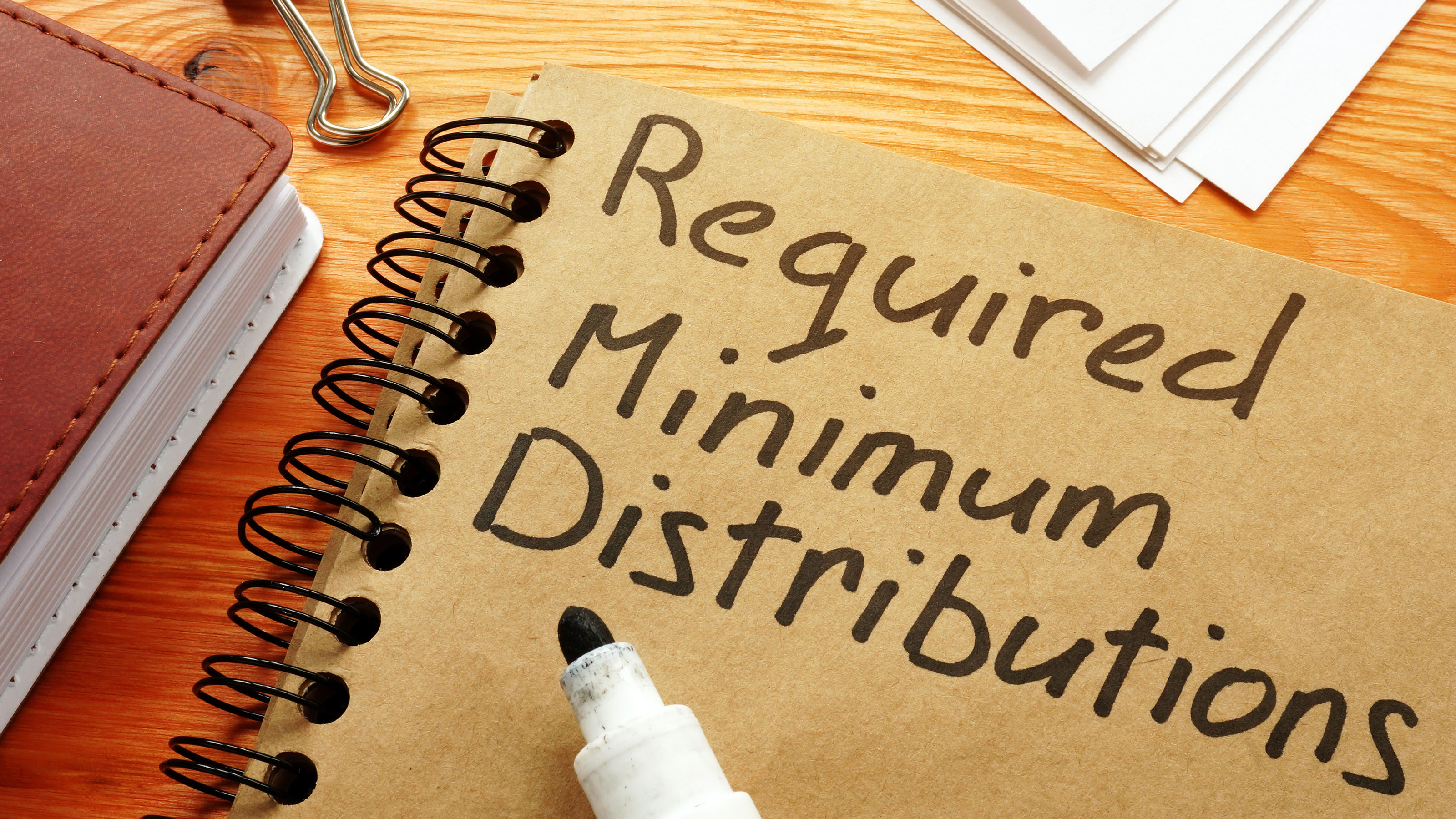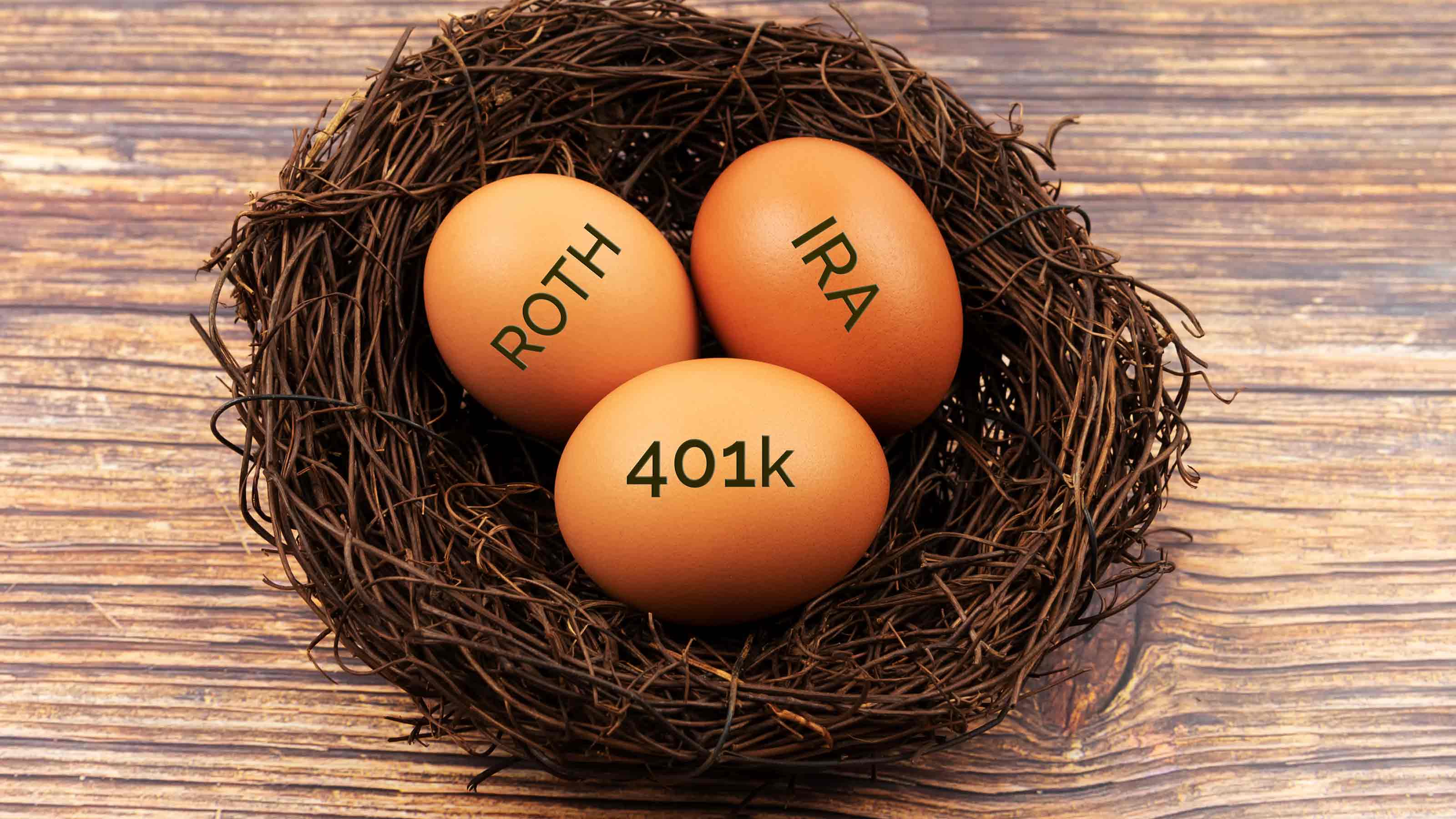Can You Count on Social Security?
I think benefits will be available in some form, but I’m not relying on them for the bulk of my income.

Profit and prosper with the best of Kiplinger's advice on investing, taxes, retirement, personal finance and much more. Delivered daily. Enter your email in the box and click Sign Me Up.
You are now subscribed
Your newsletter sign-up was successful
Want to add more newsletters?

Delivered daily
Kiplinger Today
Profit and prosper with the best of Kiplinger's advice on investing, taxes, retirement, personal finance and much more delivered daily. Smart money moves start here.

Sent five days a week
Kiplinger A Step Ahead
Get practical help to make better financial decisions in your everyday life, from spending to savings on top deals.

Delivered daily
Kiplinger Closing Bell
Get today's biggest financial and investing headlines delivered to your inbox every day the U.S. stock market is open.

Sent twice a week
Kiplinger Adviser Intel
Financial pros across the country share best practices and fresh tactics to preserve and grow your wealth.

Delivered weekly
Kiplinger Tax Tips
Trim your federal and state tax bills with practical tax-planning and tax-cutting strategies.

Sent twice a week
Kiplinger Retirement Tips
Your twice-a-week guide to planning and enjoying a financially secure and richly rewarding retirement

Sent bimonthly.
Kiplinger Adviser Angle
Insights for advisers, wealth managers and other financial professionals.

Sent twice a week
Kiplinger Investing Weekly
Your twice-a-week roundup of promising stocks, funds, companies and industries you should consider, ones you should avoid, and why.

Sent weekly for six weeks
Kiplinger Invest for Retirement
Your step-by-step six-part series on how to invest for retirement, from devising a successful strategy to exactly which investments to choose.
At some point in my young adulthood, I became aware that many millennials were skeptical that Social Security would still be paying benefits by the time we retire. Curious whether that sentiment still stands, I recently posted to my Facebook page to ask my generational cohorts whether they’ve absorbed a similar message and how they’re incorporating Social Security into their retirement plans. Many respondents said that they aren’t counting on Social Security to be around in a few decades and that to stay afloat, they expect to tap their own investments in 401(k)s and IRAs, brokerage accounts, and real estate.
In reality, Social Security is not doomed. Much of the anxiety surrounding its future stems from projections that if Congress takes no action, Social Security’s trust fund will run out of money in 2035. But even if that happens, Social Security will be on track to pay out 80% of scheduled benefits from payroll taxes. What’s more, lawmakers are likely to shore up the program, although it may be at the last minute. Strategies may include increasing the percentage taken out of workers’ checks for Social Security payroll taxes—currently, it’s 6.2% for employees—or boosting the amount of income subject to payroll taxes. Other ideas include raising the age of full retirement (currently, it’s 67 for anyone born in 1960 or later) and changing cost-of-living adjustments so that they result in smaller benefit increases.
That’s reassuring for millennials who struggle to save for retirement. As one of the commenters on my Facebook post pointed out, financially strapped millennials who are carrying heavy student debt and putting off homeownership don’t have much choice but to bank on Social Security.
From just $107.88 $24.99 for Kiplinger Personal Finance
Become a smarter, better informed investor. Subscribe from just $107.88 $24.99, plus get up to 4 Special Issues

Sign up for Kiplinger’s Free Newsletters
Profit and prosper with the best of expert advice on investing, taxes, retirement, personal finance and more - straight to your e-mail.
Profit and prosper with the best of expert advice - straight to your e-mail.
Shaping your retirement plan. Like some of my friends, I don’t give income from Social Security much weight in my retirement planning. I think that benefits will be available in some form, but I’d rather not rely on them for the bulk of my income. For someone who claims Social Security at full retirement age and had average earnings, benefits replace only about 40% of preretirement income. The percentage drops to about 27% for high earners; it can be as high as 75% for very low earners. I’m unusual for someone my age because my husband and I are hoping to collect a pension as retirees—he’s in the military and will receive a pension if he completes 20 years of service. But we’re also squirreling away money in tax-advantaged retirement accounts and our brokerage account.
For stability and peace of mind, some financial planners counsel young clients to take a similar tack: Expect Social Security to be around, but plan for retirement as though it won’t. “If you can take care of yourself with your own investments, the rest is icing on the cake,” says Tara Tussing Unverzagt, a certified financial planner and president of South Bay Financial Partners in Torrance, Calif.
Still, given that Social Security isn’t going to vanish, it’s reasonable to include it as you put together a retirement plan. At ssa.gov/myaccount, you can sign up for an account. After you’ve logged in, you’ll see your estimated monthly retirement benefits, which vary depending on the age you start taking them (for more, see Your Social Security Questions Answered). Keep in mind that your estimates will likely change over time along with your earnings and the policies regarding Social Security.
To be conservative, you could assume a 20% cut to your estimated benefit to account for the possibility that just 80% of benefits will be paid if Social Security’s trust fund is depleted. For clients who are especially worried, CFP Kaleb Paddock, founder of Ten Talents Financial Planning in Parker, Colo., assumes a reduction of as much as 50%.
Profit and prosper with the best of Kiplinger's advice on investing, taxes, retirement, personal finance and much more. Delivered daily. Enter your email in the box and click Sign Me Up.

Lisa has been the editor of Kiplinger Personal Finance since June 2023. Previously, she spent more than a decade reporting and writing for the magazine on a variety of topics, including credit, banking and retirement. She has shared her expertise as a guest on the Today Show, CNN, Fox, NPR, Cheddar and many other media outlets around the nation. Lisa graduated from Ball State University and received the school’s “Graduate of the Last Decade” award in 2014. A military spouse, she has moved around the U.S. and currently lives in the Philadelphia area with her husband and two sons.
-
 5 Vince Lombardi Quotes Retirees Should Live By
5 Vince Lombardi Quotes Retirees Should Live ByThe iconic football coach's philosophy can help retirees win at the game of life.
-
 The $200,000 Olympic 'Pension' is a Retirement Game-Changer for Team USA
The $200,000 Olympic 'Pension' is a Retirement Game-Changer for Team USAThe donation by financier Ross Stevens is meant to be a "retirement program" for Team USA Olympic and Paralympic athletes.
-
 10 Cheapest Places to Live in Colorado
10 Cheapest Places to Live in ColoradoProperty Tax Looking for a cozy cabin near the slopes? These Colorado counties combine reasonable house prices with the state's lowest property tax bills.
-
 About 40% of Heirs Say They Can’t Afford an Inherited Home
About 40% of Heirs Say They Can’t Afford an Inherited HomeEstate Planning The ‘Great Wealth Transfer’ may not help with high property taxes, soaring homeownership costs, and liquidity issues in 2025.
-
 New Bill Would End Taxes on Social Security Benefits in 2026: What Retirees Should Know
New Bill Would End Taxes on Social Security Benefits in 2026: What Retirees Should KnowTax Law Congress could look to high earners to help offset lost revenue and possibly shore up the Social Security program.
-
 Will Retirees Stop Paying Tax on Social Security Next Year?
Will Retirees Stop Paying Tax on Social Security Next Year?Social Security Lawmakers have proposed to eliminate taxes on Social Security benefits. Here’s what that could mean for you.
-
 The Downside of Delaying RMDs
The Downside of Delaying RMDsThanks to the SECURE 2.0 Act, the age for required minimum distributions is going up. However, don't automatically assume you'll benefit from this change.
-
 Retirement Saver's Tax Credit Converted to "Saver's Match"
Retirement Saver's Tax Credit Converted to "Saver's Match"President Biden has signed legislation that turns the Saver's Credit into a government match to your retirement plan contributions.
-
 How to Get Retirement Income You Can Count On – for Life
How to Get Retirement Income You Can Count On – for LifeSponsored Content from Athene
-
 Does an Annuity Belong in a 401(k)?
Does an Annuity Belong in a 401(k)?Making Your Money Last Unlike pensions, 401(k)s place the risk of outliving savings squarely on the retiree's shoulders. Find out what's right for you.
-
 SECURE Act Has Changed the Inherited IRA Rules
SECURE Act Has Changed the Inherited IRA Rulesinheritance The IRS recently proposed a major change in the way inherited IRAs work for those subject to the SECURE Act’s 10-year rule. Inheritors need to be ready.